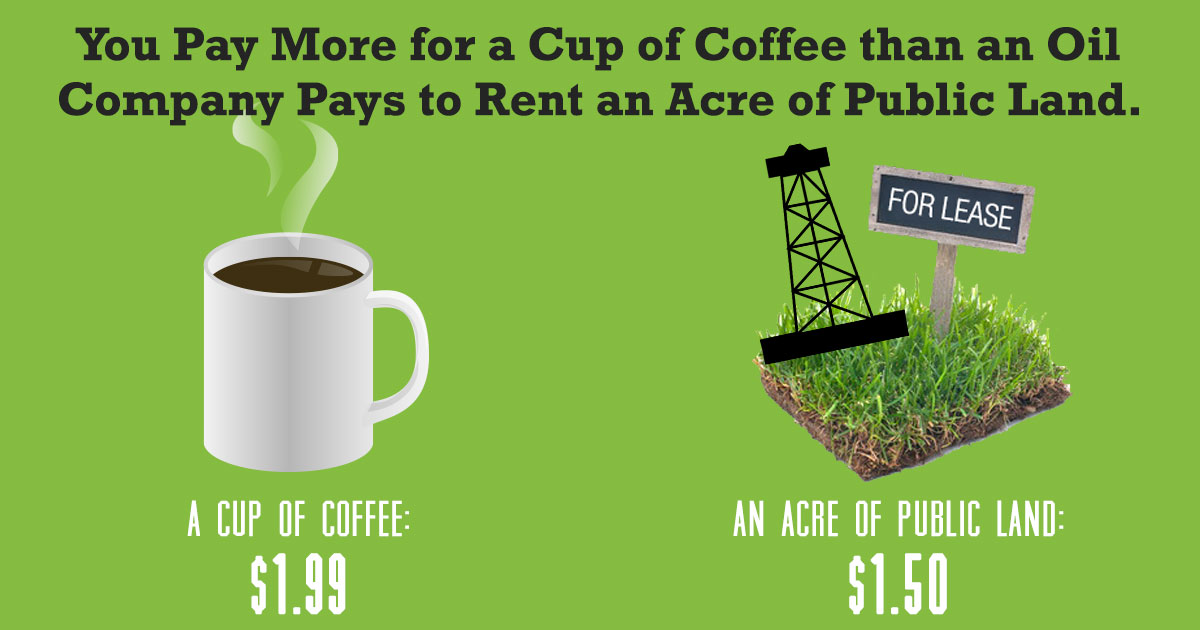- Blog
- Food & Agriculture
- The Bureau of Coal Leasing & Exports
The Bureau of Coal Leasing & Exports

Donate Now!
Your contribution will benefit Friends of the Earth.
Stay Informed
Thanks for your interest in Friends of the Earth. You can find information about us and get in touch the following ways:
The U.S may be home to the largest recoverable coal reserves in the world, but if the federal government follows through with plans to extract them at home and send them overseas, it will undermine President Obama’s Climate Action Plan and ensure catastrophic climate disruption. To illustrate, the Bureau of Land Management estimates that 16.9 billion metric tons of carbon emissions will be released if the proposed 28 new leases in the Buffalo, Wyoming, region (amounting to 10.2 billion tons of coal) are developed. By comparison, the Clean Power Plan is only expected to reduce carbon pollution by 5.3 billion metric tons between 2020 and 2030. Society needs coal to be simply kept in the ground.
Leasing for coal development on public lands is managed by the Department of the Interior’s Bureau of Land Management. The Bureau leases billions of acres of public lands through supposedly “competitive” auctions to developers, who pay a rental fee for the land and a royalty rate on the coal they produce. These fees are paid half to the United States Treasury and half to the state where the extraction occurred. If the process worked as intended, the Bureau of Land Management would choose the best offer from multiple, qualified bidders to obtain the coal’s fair market value. Ideally, the fair market value would include the environmental and social costs of coal development. The way leasing works in practice, however, is far from fair. Rather than serve the public interest, the Bureau of Land Management has become a servant of the coal industry, handing it cheap and bountiful leases at below fair market value. The failure to auction coal leases for their fair market value equals a revenue loss for the federal government of approximately $28.9 billion over the past 30 years.
Two major exclusions in the Bureau’s fair market value calculation are the social cost of carbon and coal exports:
Coal is the dirtiest form of energy, responsible for one-third of United States’ carbon emissions; however, the coal leasing process does not account for the impact of these emissions. If the social cost of carbon — a monetized measure of the damages associated with an increase in carbon emissions in a given year — were incorporated into coal lease sales, the price could further increase by as much as $62 per ton of coal, or $19 billion per year.
The coal export market reveals a huge failure in Obama’s Climate Action Plan, as carbon emissions are outsourced to countries such as Germany and China. Due to reductions in domestic demand for coal and increases in natural gas production, coal companies are turning their attention to foreign markets because they can receive a huge profit margin. For example, the price per ton of Powder River Basin coal is five times higher on the global than domestic market. Coal exports lead to more coal production, more carbon emissions, and more climate disruption. Exporting these emissions abroad does not equal a national climate mitigation policy.
Approximately 40 percent of all coal produced in the United States comes from public lands, and 87 percent of that comes from the Powder River Basin in southeast Montana and northeast Wyoming. To date, the Obama administration has leased 2.2 billion tons of coal from federal lands, primarily in the Powder River Basin. This amount of coal will release 3.9 billion metric tons of carbon pollution, equivalent to the annual emissions of 825 million cars. Using the federal government’s low ($12) and high ($109) social cost per ton of carbon estimates, a ton of coal leased from public lands during the Obama administration will cause damages totaling between $52 and $530 billion. Yet, the average price per ton was only $1.03. In other words, the coal produced from federal lands is economically and environmentally undervalued, and the federal government is complicit in permitting coal companies to profit at the expense of our climate, public health and welfare. President Obama should use his executive authority to keep coal reserves in the ground by placing a moratorium on all new coal leases on public lands.
Image credit: Center for Western Priorities
